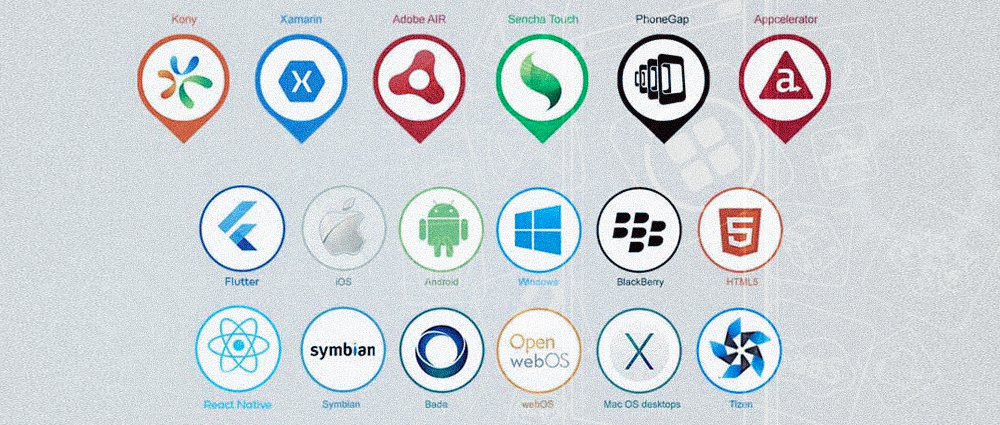How to Choose the Right Mobile Platform for Your Mobile App

How to choose a quality mobile web development company? That’s the question that keeps many quality-conscious individuals and businesses concerned. The reason? businesses are swiftly turning to mobile app development to reach a wider audience, improve customer engagement, and boost their brand presence.
However, given a proliferation of mobile application development platforms in the last few years, choosing the right company for your app might be a challenging undertaking. This blog post will explore the factors to consider when selecting the right mobile platform for your app, ensuring you make an informed decision that is consistent with your business goals and target audience.
Understanding Mobile App Development Platforms
Mobile app platforms provide the tools and frameworks necessary to create and deploy mobile apps. These platforms can be broadly categorized into three main types:
- Native App Development Platforms: Native app development involves creating separate codebases for each platform, such as iOS and Android. This approach results in apps that are highly optimized for each platform, offering superior performance and a seamless user experience. However, native app development can be more time-consuming and expensive.
- Cross-Platform App Development Platforms: Cross-platform app development utilizes frameworks like React Native and Flutter to create apps that can run on multiple platforms using a single codebase. This approach offers cost-effectiveness and faster development times, but may compromise on performance and native features.
- Hybrid App Development Platforms: Hybrid app development combines elements of native and cross-platform development. Apps are built using web technologies like HTML, CSS, and JavaScript, and then wrapped in a native container for deployment on various platforms. Hybrid apps offer a balance between development speed and performance, but may have limitations in accessing native device features.
Factors to Consider When Choosing a Mobile Platform
Numerous factors influence the choice of mobile platform for your app. Here are some key considerations:
- Target Audience: Identify your target audience and their preferred mobile platforms. If your app is primarily targeting iOS users, developing a native iOS app would be ideal. Conversely, if your target audience is global and includes Android users, a cross-platform approach might be more suitable.
- App Functionality and Features: Consider the specific features and functionalities your app requires. If your app needs to access device-specific hardware or offer complex user interactions, native app development may be necessary. For simpler apps, cross-platform or hybrid approaches might be sufficient.
- Budget: Mobile app development costs vary depending on the platform, development approach, and complexity of the app. Native app development is generally more expensive, while cross-platform and hybrid approaches are often more cost-effective.
- Time to Market: If you need to launch your app quickly, cross-platform development can expedite the process. Native app development typically takes longer due to platform-specific development efforts.
- User Experience (UX): Prioritize the user experience you want to deliver. Native apps often provide the best UX, but cross-platform and hybrid apps have made significant strides in improving their UI/UX capabilities.
- Maintenance and Updates: Consider the ongoing maintenance and update requirements for your app. Native apps may require more effort to maintain due to platform-specific changes. Cross-platform apps may have updates more frequently.
- App Store Policies: Familiarize yourself with the app store policies and guidelines for each platform. Ensure your app adheres to these regulations to avoid rejection or delays in app approval.
- Future Considerations: Plan for the future growth and evolution of your app. Consider a platform that can accommodate your app’s expanding features and scalability needs.

How to Choose a Mobile App Development Company
Once you’ve selected the right mobile platform, the next step is to choose a reputable mobile app development company. Consider the following factors when making your decision:
- Experience and Expertise: Evaluate the company’s experience and expertise in developing apps for your chosen platform. Verify their portfolio of successful projects and client testimonials.
- Communication and Collaboration: Ensure open and transparent communication with the development team. Establish clear project goals, timelines, and expectations.
- Development Methodology: Understand the company’s development methodology and their adherence to quality assurance practices.
- Cost Transparency: Request a detailed breakdown of project costs, including development fees, maintenance, and potential additional expenses.
Android vs. iOS App Development
Android and iOS are two major players in the smartphone market. In terms of the market share, Android outdoes iOS, as the former has a larger number of people using an Android phone. A Statista report reveals that about 71.1% of people use an Android phone, while around 19% of the world’s population use the iOS operating system.

According to recent studies, people in high-income countries including the United States, Japan, Singapore, and Canada use Apple phones, while in poor or developing countries, the use of Android phones is more prevalent. Software engineers often find themselves confused when it comes to choosing between Android and iOS app development. Not only are the two systems poles apart on the development level but also in terms of design and marketing strategy.
Conclusion
There are hundreds of platforms for mobile app development, but choosing the right mobile platform and development partner is key to the success of your mobile app. By carefully evaluating your target audience, app requirements, budget, and future goals, you can make an informed decision that aligns with your business objectives. Remember, the right platform and development team will transform your app idea into a reality, empowering your business to reach new heights of success.

 Careers
Careers



